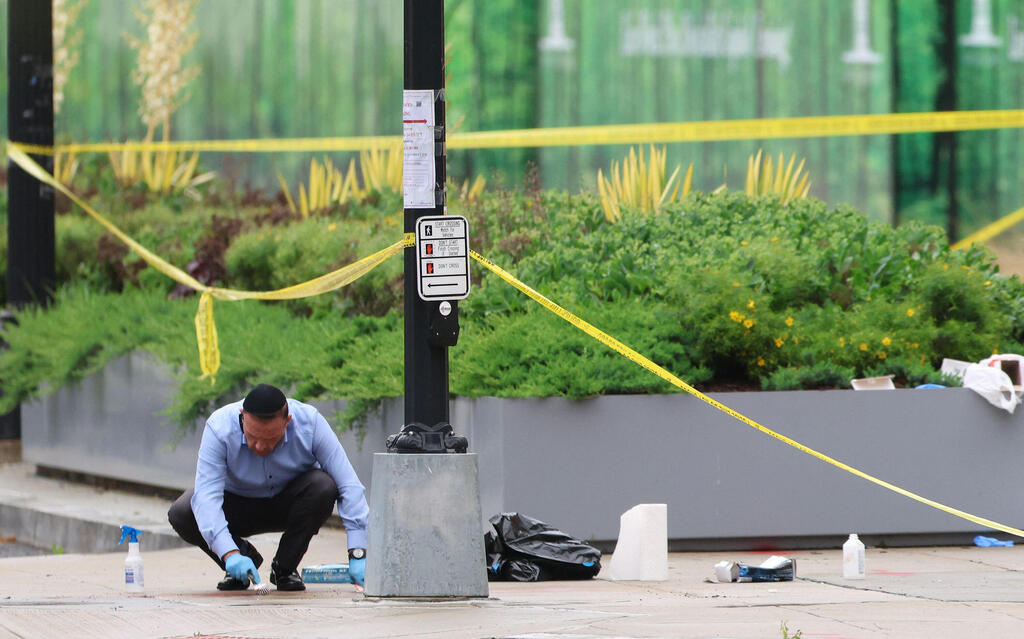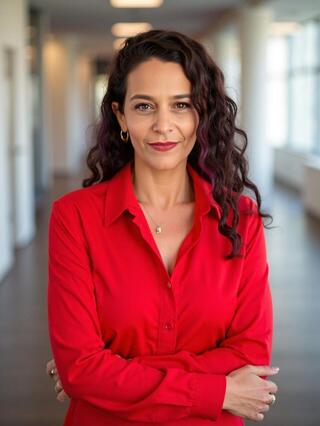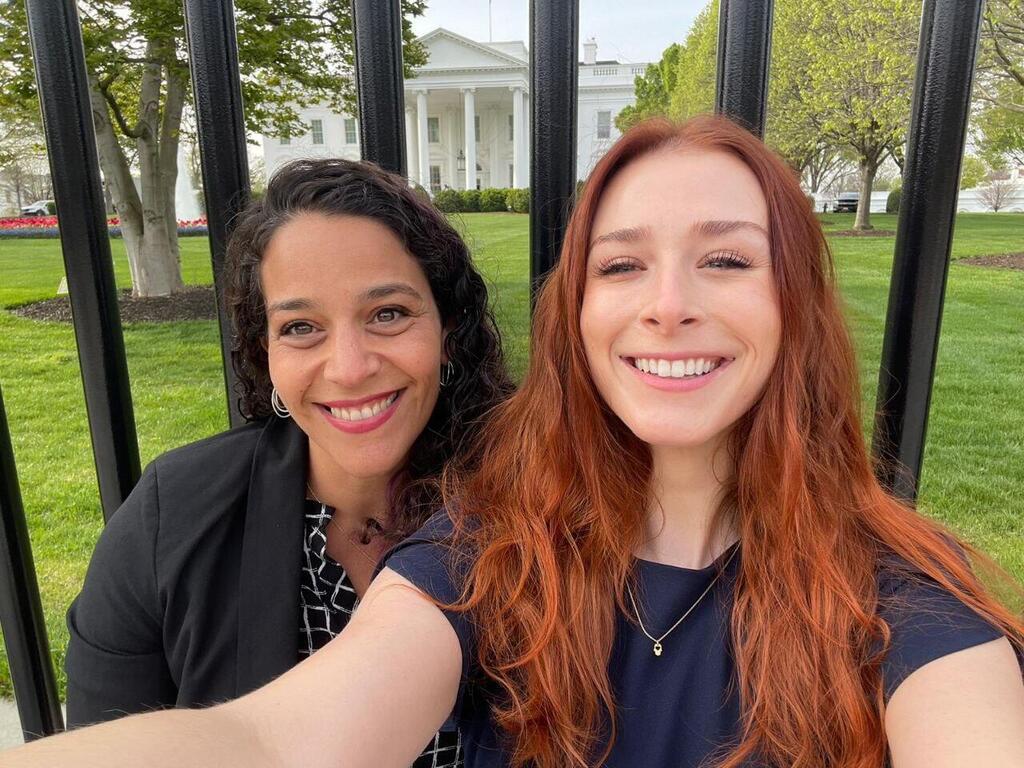Sarah Lynn Milgrim and Yaron Lischinsky were murdered in the heart of the U.S. capital. Not in combat, not because of their opinions, not because of their actions. They were murdered simply because they were Jews.
Since October 7, there has been an unprecedented eruption of antisemitism—verbal, physical, media-driven, institutional—targeting Israel and Jews. Murders, violent assaults including rape, humiliation and social exclusion—all with a clear purpose: to harm Jews for being Jews. To challenge our very right to exist.
In recent hours, I was asked to speak to foreign media. The sense of rage, abandonment and helplessness overwhelmed the heartbreak, and I chose to amplify this message. Again and again, the same question was asked, in various forms: "Do you believe this murder is connected to the ongoing war in Gaza?"
My answer is sharp and unequivocal: this murder has no context. No background. Only hate. There is only subtext. A subtext that echoes: could it be that the victims brought this upon themselves?
Sarah and Yaron did not "pay the price" of a policy they had no part in shaping. They were murdered because they were Jews, who bore their identity with pride. And the killer, it seems, lifted his weapon carried on the waves of hate flooding social media, university campuses, international media—and most of all, the silence of global leadership, which allows this to happen in the name of political correctness that justifies hatred and violence under the guise of free speech.
What other religious or national group is expected to hide its identity abroad—language, kippah, Star of David—for fear of being marked as a target? Who else needs to use a fake, non-Jewish-sounding name just to avoid being rejected or harmed by a rideshare driver? What other mother finds herself screaming at her children not to speak their native language on the streets of Europe?
2 View gallery


The scene of the attack in Washington, D.C.
(Photo: TASOS KATOPODIS / GETTY IMAGES NORTH AMERICA / AFP)
I remember that moment on October 7, when I was abroad with my family, and a primal fear made me demand my children stop speaking Hebrew. A deep, instinctive terror. How do you even explain that to them later—why they must not appear as who they are? Faced with my task as a parent—to instill confidence and trust in the world—I could not find the words to explain the existential fear that gripped me, as a Jew, as an Israeli, in a foreign country in the days following October 7.
I knew Sarah through my professional work promoting recognition of the gender-based violence crimes committed on October 7 and in captivity. She helped me pass along the most painful and accurate information to senior officials in Washington. She believed our story could be told better—more precisely, more fairly.
Get the Ynetnews app on your smartphone: Google Play: https://bit.ly/4eJ37pE | Apple App Store: https://bit.ly/3ZL7iNv
She joined the embassy team out of a deep sense of duty, seeing the rise in antisemitism—not from the fringes, but at the very heart of global power centers, where antisemitism now wears a more refined, acceptable face—yet is no less deadly.
Sarah took it upon herself to fight it. Not with hate, but with diplomacy. Not with violence, but with facts and public engagement. The same antisemitism she dedicated her life to combating ultimately fueled and led to her murder.
 Ayelet Razin Bet Or
Ayelet Razin Bet OrSarah and Yaron were killed because they were Jews. Because they became symbols. Because their murderer felt emboldened—licensed, even—in a world where antisemitism has become more legitimized, more dangerous, more lethal. That same "refined" antisemitism, cloaked in politically correct discourse, is what led to the murder of Sarah and her beloved Yaron.
The ground is burning—not just in Israel, but in London, Paris and New York. No Jew is truly safe. Anywhere. The deaths of Sarah and Yaron are a terrible tragedy—but also a call to action and a test of leadership. Especially now, as the darkness of hatred spreads, we must raise our voices—bravely, proudly, and together. We will continue telling our story, in their memory.
- The writer is a gender equality advocate and expert in combating gender-based violence, and the former director-general of the Authority for the Advancement of the Status of Women.


